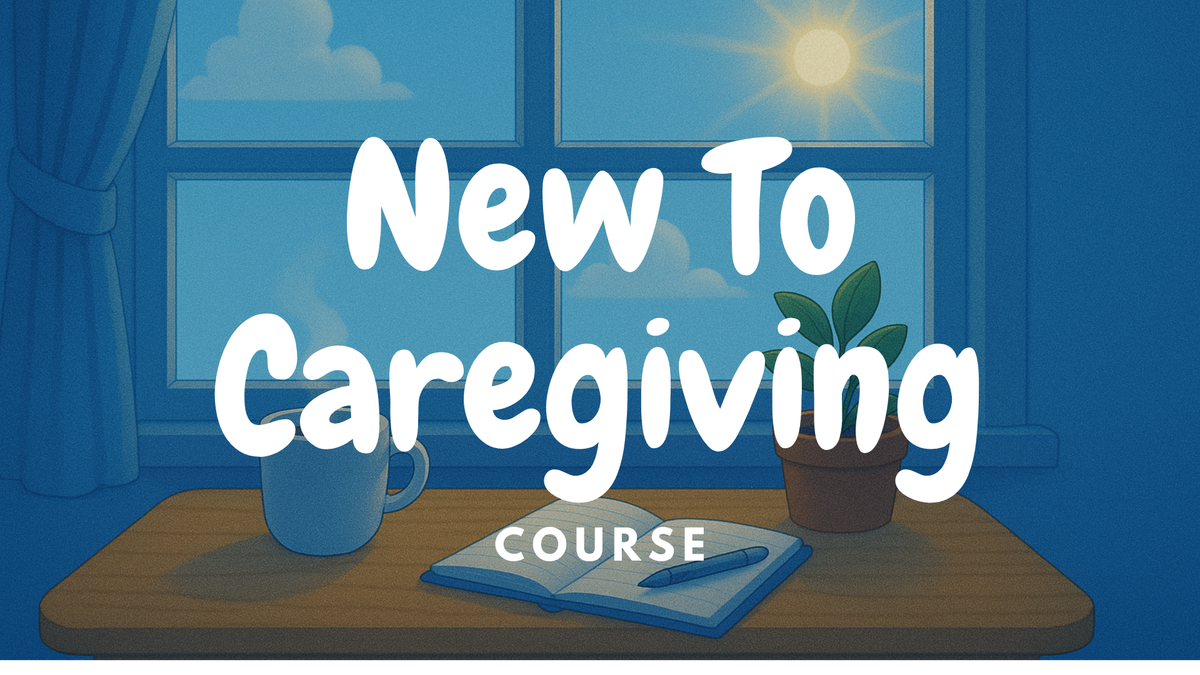New To Caregiving

Stepping into a caregiving role can be a profound, rewarding, yet challenging journey. Often, family caregivers find themselves navigating an unfamiliar landscape of legal documents, health care nuances, and emotional dynamics. "Empowered Caregiving: Navigating the Journey with Confidence" is here to illuminate that path. This course is meticulously designed for family caregivers, ensuring they are equipped, educated, and supported every step of the way.
Click Here to take the course on Udemy (Currently, only available on Udemy)
Through this comprehensive course, participants will:
- Discover Organizational Confidence: Unravel the complexities of crucial legal and financial paperwork. From powers of attorney to advanced directives, we simplify the process, helping you establish a secure foundation for all caregiving responsibilities.
- Master Family Dynamics: Learn how to convene and conduct effective family meetings, ensuring clear communication and collective decision-making. We provide you with the strategies to unite your family around shared caregiving goals, fostering collaboration and understanding.
- Access a Toolbox for Success: Immerse yourself in a diverse range of caregiving tools and resources, always available for reference. These practical assets are designed to bolster your day-to-day caregiving approach, embedding confidence in your routine.
- Embrace Continuous Learning: Whether you're new to caregiving or need a refresher on the essentials, our course promotes a culture of ongoing education. By introducing innovative care strategies and offering a platform for skill enhancement, we help prevent caregiver burnout and ensure sustained quality of care.
This inclusive course welcomes all. No prior experience is needed, just a dedication to learning and a commitment to the caregiving journey. "Empowered Caregiving" acknowledges the challenges faced by caregivers and responds with compassion, providing a roadmap for those who strive for excellence in caring for their loved ones.
Join us, and transform your role as a caregiver from a daunting task into a journey of empowerment, understanding, and confident care. Enroll today, and together, we will navigate the caregiving journey with assurance and expertise.
What you'll learn
- Get organized and prepared - The course will help learners get their legal and financial paperwork in order.
- Learn how to facilitate a family meeting - Having a family meeting is crucial for caregivers to get everyone on the same page.
- Gain access to caregiving tools - Providing caregivers with tangible tools and resources.
- Ongoing education - The ongoing learning can help prevent caregiver burnout.
Who this course is for:
- The New to Caregiving course welcomes all family caregivers with an eagerness to learn - no prior qualifications required. Whether you're still figuring things out or have been in the role for years, this course meets you where you are. Join us to get organized and gain confidence on your caregiving journey today!





